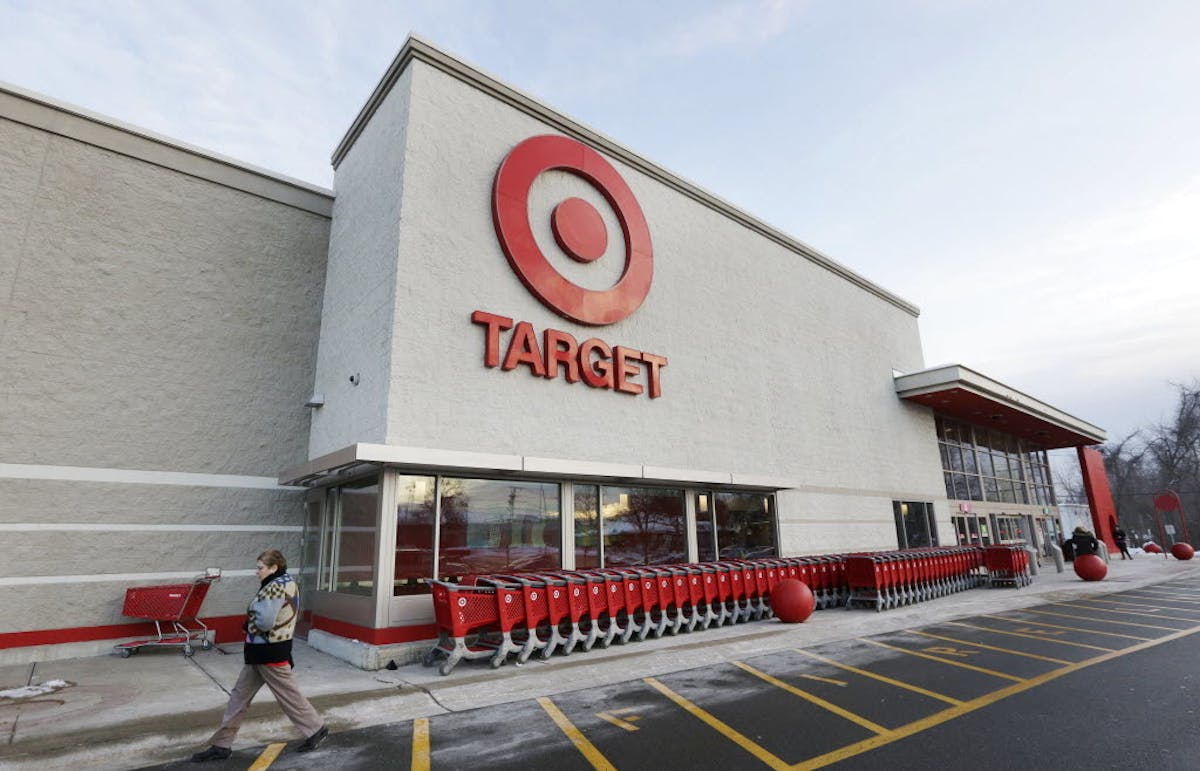The only surprise out of the first investor conference call Target's executives have held since disclosing one of the biggest retail customer data breaches ever was just how boring the call was.
Target managed to achieve that Wednesday morning with both what its executives said and how they said it.
In the customary format for such things, Target CEO Gregg Steinhafel delivered scripted opening remarks. He did so in a voice so flat that he sounded like one of the machines that advise you to insert cash or credit card when leaving a parking ramp.
Two key lieutenants then jumped on the call, and they sure didn't cut anything short. But while the transcript of the call runs 26 pages, there wasn't that much new on the implications of the data breach.
The topic came up, sure, but there may have been nearly as much to be learned about the women's swimwear promotional tie-in with Sports Illustrated.
With so much unknown about the remaining costs of cleaning up the breach, the company has only recorded pretax data breach expenses of $61 million, as of the end of the fiscal year on Feb. 1. With the anticipated collection of $44 million of insurance proceeds, the net expense in fiscal 2013 was just 2 cents per share.
None of this is meant as criticism of Target's managers, because in many ways their presentation was as skilled as any I've heard. What they have managed to do, and what investors have largely accepted, is that the story is no longer about a data breach.
The story is once again about how successful Target is at its business of selling merchandise to its customers.
And that story, while not exactly great, is a lot more fun for executives to talk about. What they said was enough to drive up the price of Target's shares Wednesday by 7 percent.
Steinhafel and his team said the holiday season had been running ahead of plan until the data breach was disclosed on Dec. 19. Sales then turned "meaningfully negative" but quickly began to recover.
CFO John Mulligan told investors and analysts the company expects comparable-store sales to be flat to down 2 percent in the first quarter of the current fiscal year. "So far in February," he said, "comparable [store] sales have been running within that range, ahead of our forecasts and nearly flat to last year."
Given the context here, just months after losing credit and debit card information for 40 million customers to a bunch of criminals, "nearly flat" comparable store sales is an achievement worth celebrating.
Part of the explanation is the loyalty of shoppers who use a Redcard. These Target-branded debit and credit cards can be used for anything from baseball tickets to books from Amazon.com, but use one at checkout in a Target store and you get 5 percent off.
As Mulligan told investors, "our core guests, Redcard guests, they continue to shop with us. … Redcard penetration continues to grow meaningfully."
Given what's happened, it would have been an achievement to just keep the number of Target Redcards from declining. Data from these debit and credit card accounts is the very thing that Target lost to the bad guys. If anything would remind consumers of their vulnerability, you would think it would be pulling out a card branded with Target.
The recovery of the business has made management optimistic enough to say that Target should be able to buy back $1 billion to $2 billion worth of stock in the back half of the year. This is down from what the company told investors last fall, with buybacks of up to $4 billion, but many investors had already assumed there wouldn't be any for a good long while.
Buying back stock is as important to Target's strategy as anything else, because without the strong growth of new stores it has had in the past, buying back stock is how it plans to deliver acceptable returns to shareholders.
There wasn't all good news to talk about, of course.
The company is going to lose a lot of money in Canada again this year. There has been a sizable bump in inventory, never a good thing for a retailer because that's always followed by clearance sales. And executives said the company was more cautious about earnings per share for the year than analysts had previously projected.
None of this could have surprised the analysts. Of the 25 now reporting data through Thomson Reuters, only eight this week reported having a positive opinion on the stock, while four have the exceedingly rare recommendation to investors that they sell or that Target's stock will underperform the broader market.
One word you could see Wednesday in their research reports about Target's fourth quarter was "stabilized," and that management has done a good job containing the damage from the data breach.
Another popular word in research reports is "structural," as in "structural issues." If anything, that should be even more worrisome than any data breach. Structural doesn't mean the kind of problem that results from a weakening economy or some poorly chosen new store locations.
It means that management has to figure out how it intends to respond amid fundamental changes in its market. After killing themselves to contain the data breach, Target's executives still face the same daunting challenges they had the week before it happened.
lee.schafer@startribune.com • 612-673-4302

Schafer: What do you really need to retire?

Schafer: How doing business can be a bit more like Christmas morning

Schafer: There won't soon be another opportunity to rethink the I-94 corridor

Schafer: The fruits of Honeywell's long-game dedication to quantum computer now being seen


